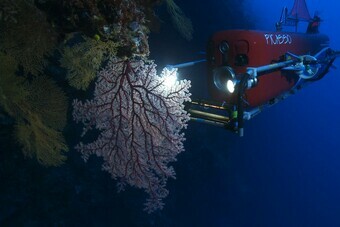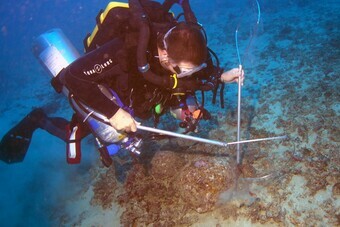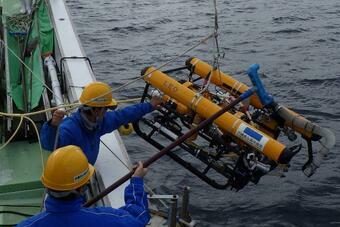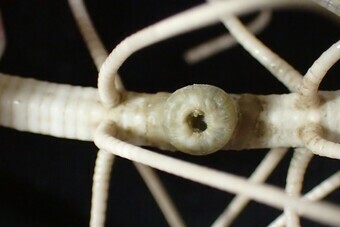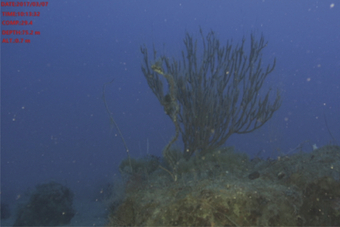Publications:
Reimer et al. 2019
scientific
article |
Front Mar Sci
|
open access

Exploring the Biodiversity of Understudied Benthic Taxa at Mesophotic and Deeper Depths: Examples From the Order Zoantharia (Anthozoa: Hexacorallia)
Reimer JD, Kise H, Santos MEA, Lindsay DJ, Pyle RL, Copus JM, Bowen BW, Nonaka M, Higashiji T, Benayahu Y
Research on so-called “minor taxa” at mesophotic depths has lagged behind that of more commonly researched groups such as fish or hard corals. Exemplar taxa include species of the order Zoantharia, benthic colonial anemones that are cosmopolitan in distribution but understudied in many ecoregion and ecosystems. In this study, we examine the results of rare mesophotic to deep sea surveys (one rebreather, one remotely operated submersible (ROV) + net survey, two ROV surveys) from Japan and Israel. We examined the collected images and video data to provide a first estimate of Zoantharia diversity at mesophotic depths. Zoantharians were observed in all surveys, indicating their ubiquitous presence in mesophotic and deeper ecosystems. Additionally, specimens (n = 12) acquired via these surveys were phylogenetically analyzed with three DNA markers. Phylogenetic results showed the presence of undescribed species based on the uniqueness of acquired DNA sequences, including one specimen belonging to the family Abyssoanthidae, previously only reported from depths below 2000 m. Other specimens belong to groups that inhabit shallower and deeper depths (Antipathozoanthus, Epizoanthus, and Parazoanthidae). These results depart from surveys of mesophotic coral ecosystem fishes and crustaceans, which indicate affiliations almost exclusively with shallow genera and families. We hypothesize that mesophotic depths are an ecotone for zoantharian diversity, with links to both deeper and shallower ecosystem diversity. Future surveys in mesophotic depths should incorporate phylogenetic methods to better catalog so-called “minor taxa” (not only including Zoantharia) and enhance the scientific foundation for conserving the biodiversity of these threatened ecosystems.
153- 650 m
Mesophotic “mentions”
28 x (total of 4315 words)
Classification
* Presents original data
* Focused on 'mesophotic' depth range
* Focused on 'mesophotic coral ecosystem'
Fields
Biodiversity
Focusgroups
Zoantharia (Zoanthids)
Locations
Israel - Red Sea
Japan - Ryukyu Islands (Okinawa)
Platforms
Rebreather
Remotely Operated Vehicle (ROV)


